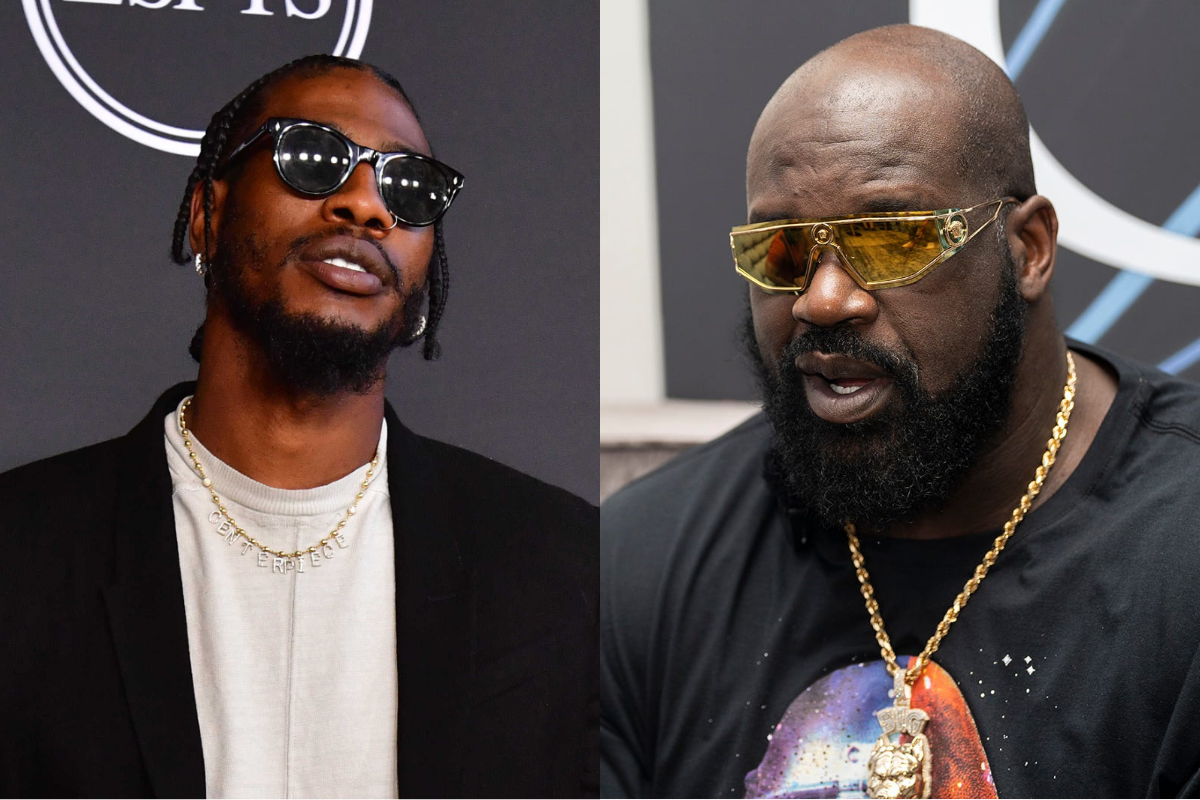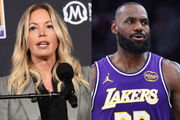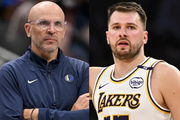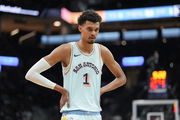

“I love rap and will always continue to,” said Shaq once. The worlds of hip-hop and the NBA have long been intertwined, with players and rappers collaborating, influencing, and sometimes stepping into each other’s arenas. From Allen Iverson’s rebellious swagger-inspiring street culture to Damian Lillard dropping chart-worthy bars, the connection runs deep. Yet, one name looms large over this unique crossover: Shaquille O’Neal. A dominant force both on the court and behind the turntables, Shaq’s rap career was groundbreaking—but as Iman Shumpert recently pointed out, it might also be underappreciated.
Watch What’s Trending Now!
Speaking on Carmelo Anthony’s 7PM in Brooklyn podcast, Shumpert highlighted a recurring issue for NBA players who moonlight as rappers: the lack of recognition.
“This is the problem with what we got going on. Like people will say, man, Shaq went platinum and all that. Man, he the best rapper ever. I’m like, bro, what’s your favorite song? And they never know. They just like, he got a song with Big,” said Shumpert during the podcast.
ADVERTISEMENT
The prime example given by the cast during the podcast is Shaq’s 1996 song “You Can’t Stop the Reign,” which featured none other than the Notorious B.I.G. Despite its critical acclaim, many remain unaware of this gem. Released as part of Shaq’s third studio album of the same name, “You Can’t Stop the Reign” is a testament to the Diesel’s serious approach to hip-hop.
The LA Lakers legend’s rap career wasn’t a fleeting experiment. His debut album, Shaq Diesel (1993), went platinum, with tracks like “(I Know I Got) Skillz” showing he could hold his own in the studio. Over time, Shaq worked with legends like Method Man, RZA, and even Jay-Z, further cementing his credibility.
However, despite commercial success and heavyweight collaborations, Shaq’s music is often overshadowed by his larger-than-life NBA persona.
ADVERTISEMENT
Shumpert’s observation hits home here. While Shaq broke barriers, he also bore the brunt of skepticism surrounding athlete-rappers—a sentiment that lingers today. As a rapper himself, he is uniquely positioned to speak on the struggles of athletes breaking into the music industry. The 2016 NBA Champion has released multiple tracks and projects like ‘Critical’, ‘Substance’, and ‘Eyes’.

Getty
Shaquille O’Neal| Getty
The former NBA champ’s critique isn’t just about Shaq or himself; it’s a call to recognize and celebrate the artistry of athlete-rappers who have successfully bridged two worlds. However, O’Neal is busy now to bridge the gap between another music scene and the NBA.
ADVERTISEMENT
Shaquille O’Neal’s Current Music Venture
Over 19 illustrious NBA seasons, Shaq dominated the court with sheer power and unmatched charisma, earning four championships and a place in the Hall of Fame. Off the hardwood, he made waves in the rap game, releasing four studio albums. But Shaq’s musical journey didn’t stop there. Today, the former NBA giant has reinvented himself as DJ Diesel, diving headfirst into the world of electronic dance music.
ADVERTISEMENT
O’Neal is now a festival mainstay, performing at Electric Forest, Tomorrowland, and Lollapalooza. One of the only “basketball” players who attracts larger crowds for his high-energy sets of bass, dubstep, and trap music than the number of people who attend his basketball games. Since making his EDM debut in 2015, the seven-footer has worked with several well-known electronic artists, including Diplo, DJ Carnage, Von Miller, and Steve Aoki.
This love for music has also inspired his family. Shaq’s son, Myles O’Neal, has followed in his father’s footsteps, carving out a niche as a DJ in his own right, and has supported artists like SIDEPIECE, Sickick, Chantal Jeffries, and NITTI. In the end, it seems, Shaq’s legacy continues to evolve—and thrive.
Top Stories
Jeanie Buss Takes Action After ESPN Reveals LeBron James’ Dirty Laundry

Jason Kidd Warns Lakers Ahead of Luka Doncic’s Dallas Return as Dangerous Situation Unfolds

LeBron James’ Ungrateful Behavior Over Bronny’s $7.9M Lakers Move Irked Jeanie Buss

Is Victor Wembanyama Playing Tonight? Spurs vs Jazz Latest Injury Report (Jan 22)

Respect Pours In After Paige Bueckers Makes $50,000 Decision Tied to Her High School

ADVERTISEMENT
ADVERTISEMENT
ADVERTISEMENT
ADVERTISEMENT